Corpo Expedicionário Português - Aníbal Milhais
Dated: November 19, 2008.
Aníbal Augusto Milhais was the most decorated Portuguese soldier in the Great War and still the only awarded with the highest national honnor, the Ordem de Torre e Espada (Order of Tower and Sword for honnor, loyalty and merit) in the batlefield instead of the usual public ceremony in Lisbon.
Milhais was a farmer, born in the small vilage of Valongo in a remote area of Portugal and was drafted in 1917, arriving to France in the same year, as a member of the Trás os Montes brigade from the 2nd Infantry Division from the Portuguese Expeditionary Corps.
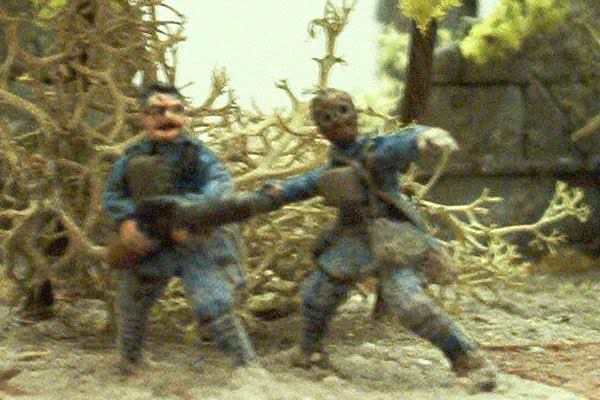
The 2nd Infantry Division was deployed in a front of near 11 km. In theory, the Division should have been 20.000 man strong, however never reached full strength and the Portuguese forces lost more than 5.000 men before the German offensive and many other are in logistic duties. Its difficult to know how many combatents are in place, but doubt that these are more than 14.000, almost all without leaves for nine months.
To make things even worst, the Portugueses liked to raid German trenches and even in a quiet area the attrition rate was extremly high. Three German divisions had been rotated in the sector facing the 2nd Division in the last nine months before April 1918. Only this consecutive night raids can justify so many casualties without any major battle and the extreme fatigue of the front rank soldiers.
These page copies from the book "Sniping in France", writen by a British author, H. Hesketh-Prichard, mention the rather strange vocation of Portuguese soldiers who volunteer too often to infiltrate enemy lines and raid trenches even if the casualties on both sides start to rise. Was clear that this Division would be more effective if divided and added to British divisions as light infantry batallions and allowed to raid or skirmish as they ancesters from the Caçadores done during the Peninsular War instead of keeping them in the trenches, but political reasons prevent that from happening.
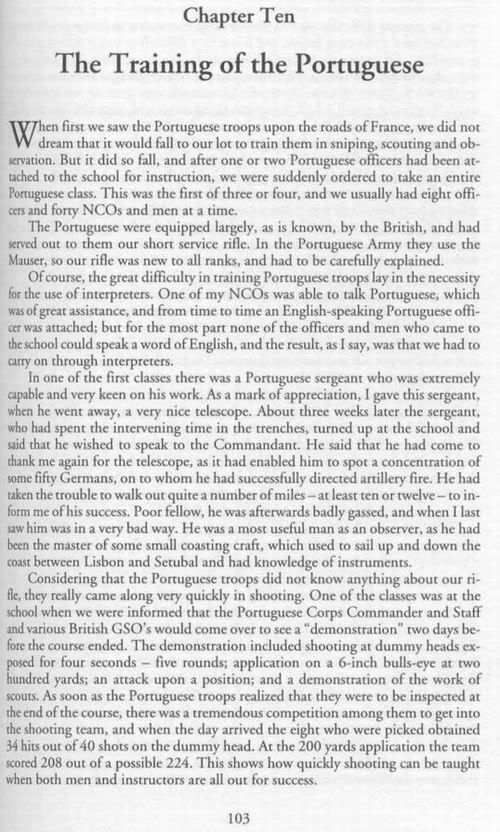
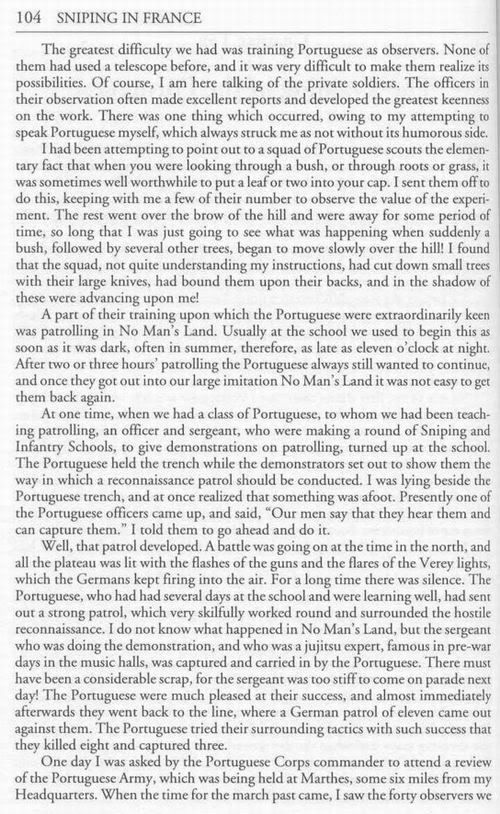
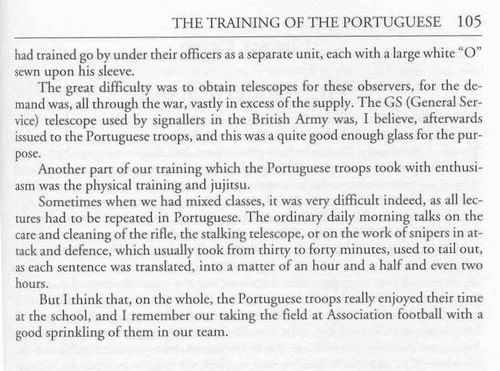
During "Operation Georgette", when the German Army attacked his division, Milhais stand up with his Lewis machine gun and defeated, almost single handed, two german assaults. Finally, the Germans decided to go around and Milhais found it self alone in the rear of the enemy lines where he stood for three days almost without eating or drinking.
In the third day, Milhais, still carrying his Lewis, rescued a Scottish major from a swamp and the two could reach Allied lines. Milhais was warmly welcomed but didn't tell anything about his adventures and was only thanks to the officer he helped and reported the story to the British HQ and several other testimonies that his deeds become know.
A few months later, Milhais hold again the Germans, standing alone with his Lewis and allowing a Belgium unit to retreat safelly to a secondary trench without casualties. Both the British observers present in the scene and the Belgium commander included his action in they reports and Milhais was awarded with orders from both countries and with the French Legion d´Honneur before 15.000 allied soldiers.
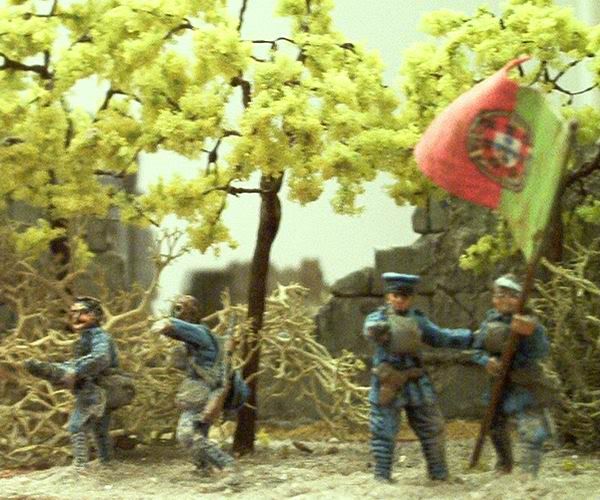
Unfortunately, after the war ended, the Portuguese economy was near bankrupcy and Milhais faced dificulties to provide for his familly. The Portuguese government promised to help but instead of an allowance, named the village where he was born after his name. Now the rather shy Milhais was living in the village of Valongo of Milhais, more famous than ever, but as poor as before.
In 1928, Milhais went to Brazil where was received as an hero by the Portuguese community. When the Portuguese living there realized that Milhais was in Brazil by need, the community gather funds to send him back to Portugal with enough money to provide his familly.
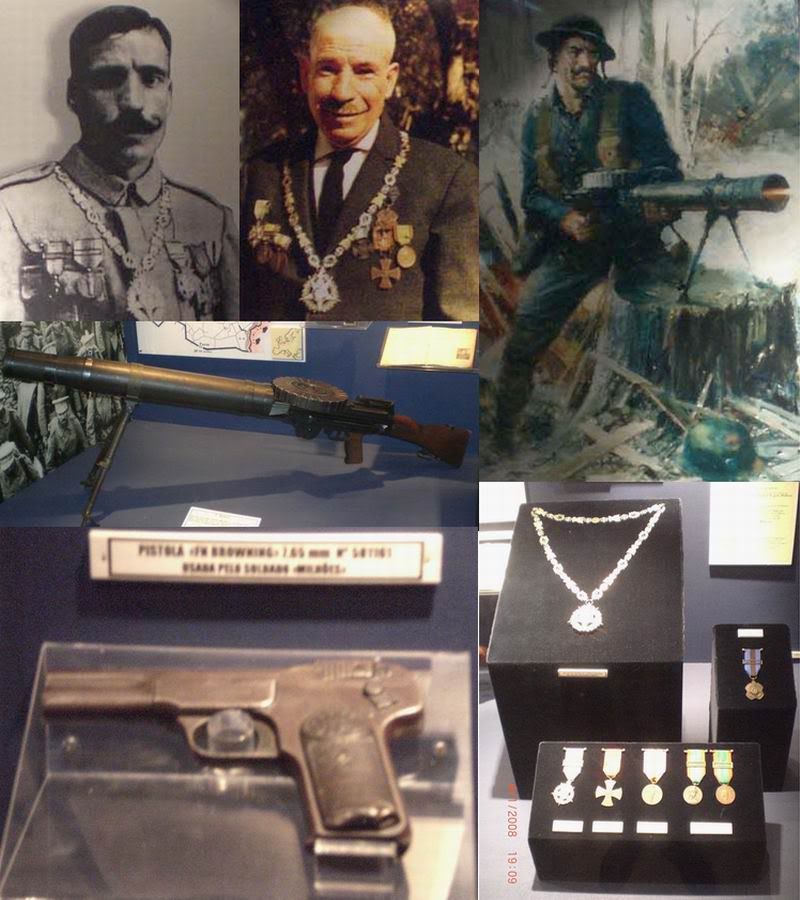
Milhais died in the 80's in the village named after him and a permanent exhibion remembering his achievments can be seen in the Military Museum in the city of Porto.
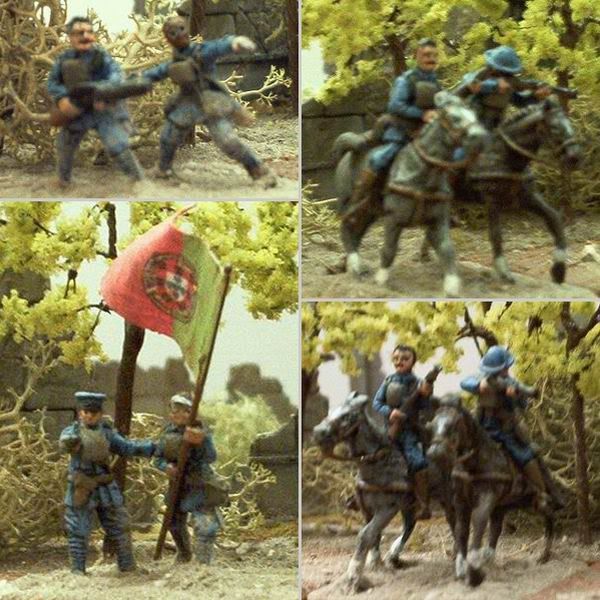
Also during "Operation Geogette", captain Bento Roma was the commander of a Portuguese infantry company who stopped the Germans for more than 24 hours, blocking one of the attack routes and allowing the Allies to place reinforcements able to hold a secondary line.
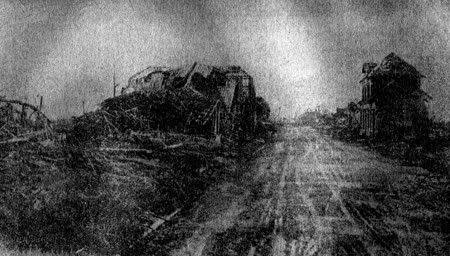
Commanding a mix of Portuguese and British soldiers from the King Edward's Horse and the 11th Cyclist Battalion, Bento Roma held the Germans under heavy artillery fire, holding successive enemy assaults in La Couture. The village was completelly destroyed when the combat ended and the defenders have already spend all they ammunitions when the last survivors, most of them wounded, surrender.
Book reference:
http://www.amazon.com/Sniping-Scientific-Training-Observers-Snipers/dp/0935856099
Cheers
Mr. Nuno M. Cabeçadas
Portugal